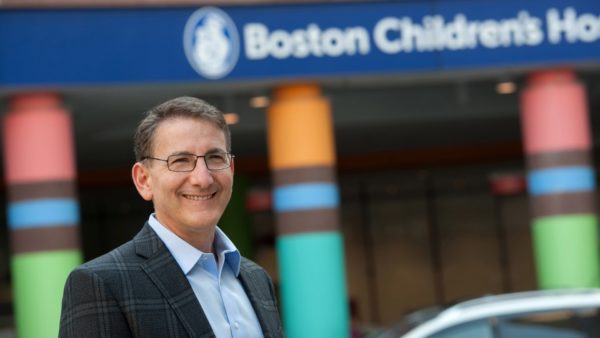
If you were on Facebook or Twitter a couple days ago, you probably saw a lot of posts about people coming out or heard about Katy Perry helping a fan propose. The month of October is, among many other things, known as LGBTQ+ History Month. Specifically, Oct. 11 is known to many as National Coming Out Day, a day to celebrate coming out as LGBTQ+ and to show support for the community. In Stanford’s Medical School, students and faculty celebrated this day by inviting Dr. Mark Schuster, MD, PhD, to give a lecture as a Pfeiffer Visiting Scholar Lecturer called “The Doctor is Out: Perspectives on Being LGBTQ+ in Medicine.”
Dr. Schuster has been a member of the National Academy of Medicine, president of the Academic Pediatric Association and co-chair of the Harvard Medical School LGBT Advisory Committee among many other positions. He now serves as the founding dean of the new Kaiser Permanente School of Medicine in Pasadena, California. However, Dr. Schuster was not invited to speak at the SoM on National Coming Out Day because of his many titles, but rather because he is an active voice in research and advocacy on LGBTQ+ health and LGBTQ+ in medicine and an openly gay doctor himself.
In the courtyard of the Alway building in the School of Medicine, tables of antipasti were crowded with medical students and faculty alike as they waited for the lecture to start. Waiting my turn in the food line, I quickly realized that almost everyone here knew each other, and they were excited to listen to Dr. Schuster because this was something they all planned to come to together.
Dr. Schuster was introduced by second-year medical student and president of the LGBT-Meds club of the SoM Mark Jeng, who shared a story about how he heard Dr. Schuster’s famous published speech, “On Being Gay in Medicine,” five years ago. Jeng talked about how Dr. Schuster’s speech inspired him to pursue medicine and work to make a difference in the LGBTQ+ community, and it looked like he wasn’t the only one in the room.
When the lecture began, Dr. Schuster started by talking about the famous aforementioned speech, when he talked about his personal experience as a gay man in medicine at the Children’s Hospital Boston Gay, Lesbian, Bisexual, and Transgendered & Friends Celebration in 2010 and how that turned him into an LGBTQ+ icon in medicine. He talked about how that one speech made people, both people he knew and total strangers, feel safe in sharing their experiences in coming out and the discrimination they faced. The story was met with a lot of audience agreement.
Dr. Schuster’s lecture touched on the following topics: LGBTQ+ discrimination in the U.S., discrimination against LGBTQ+ healthcare providers, what the healthcare industry can learn from outside industries and what the audience, as the future of the medical field, can do to change the status quo.
His lecture was both enlightening and inspiring. Statistics from Pew Research Center, Gay & Lesbian Alliance Against Defamation (GLAAD) and various research studies painted a grim picture of the current status of LGBTQ+ people in the realm of health care. Not only were patients facing bias and discrimination from their physicians, but physicians were facing discrimination from patients and coworkers.
However, Dr. Schuster noted that things are looking up. Top medical schools like Stanford and Harvard are leading the march to create a better environment for LGBTQ+ patients and healthcare providers by making sure that students are more aware of what goes on in the LGBTQ+ community and are better prepared to treat and care for LGBTQ+ patients.
The event instilled in me the sense that Dr. Schuster is truly an icon and role model. As an openly gay physician and advocate for LGBTQ+ healthcare and LGBTQ+ in medicine, Dr. Schuster was a treasure trove of information and ideas. The lecture was impassioned and motivated everyone in the room, even a non-medical student like me. It was strange as a non-medical, LGBTQ+ person, sitting in a room with over 100 people, who all laughed wryly when he talked about the difficulty LGBTQ+ people face, couldn’t contain their smirks and giggles when he talked about facing bigots and hypocrites and applauded when he talked about all the small victories the community has made.
The audience was captivated by Dr. Schuster. A crowd of over 100 current and future healthcare professionals were all raptly listening as Dr. Schuster listed the problems that they had seen, heard and even experienced themselves. It dawned on me that I wasn’t just sitting in a room filled with current and future physicians, but rather I was sitting in a room with LGBTQ+ crusaders. This wasn’t just a collection of people from the School of Medicine; this was a collection of people, LGBTQ+ and allies, who genuinely wanted to learn more about how they can make being LGBTQ+ people, either as a patient or as a fellow health care professional, safer and better.
And that is truly progressive. Stanford University is one of the LGBTQ+-friendliest campuses in the United States, and we have people like those from the School of Medicine to thank for that. Dr. Schuster’s lecture gave me hope, as member of the LGBTQ+ community, that the future of healthcare is in safe hands.
Contact Mell Chhoy at mchhoy ‘at’ stanford.edu.
